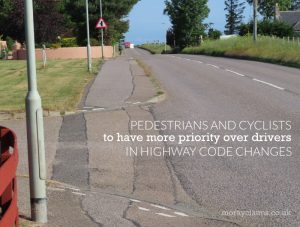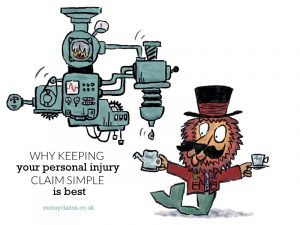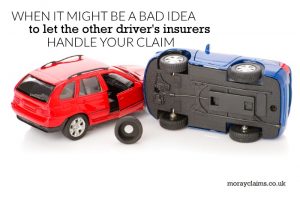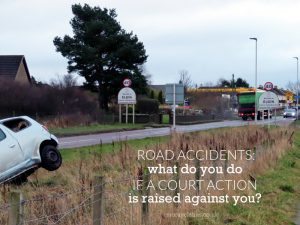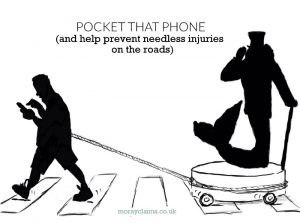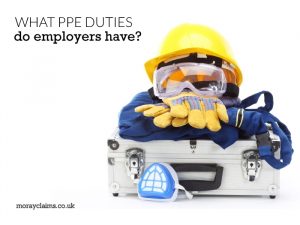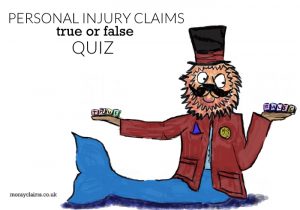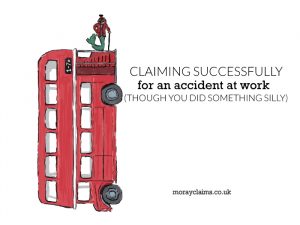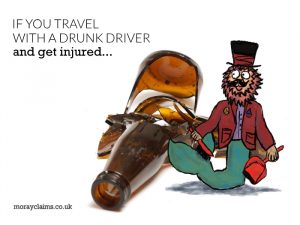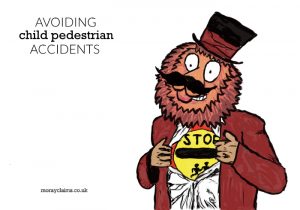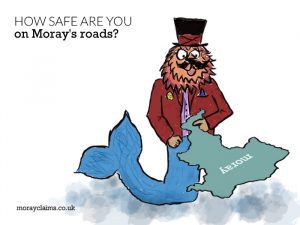Walking and cycling have become more popular during the pandemic. So-called “active travel” has benefits for personal health as well as the environment. Department for Transport figures show that, over the last year, there’s been a 46% increase in the number of miles cycled on British roads. Tellingly, that’s a larger increase than in all of the previous 20 years combined. To take even one corner of Moray as an example... While the Lossiemouth - Elgin cycle path beside the A941 has been an active travel benefit for many years, the long-mooted track to connect Lossiemouth to Hopeman has only recently gained significant traction, despite years of campaigning. Now that the charitable organisation (SCIO) Laich of Moray Active Travel Routes is in existence, and with help from Sustrans, a connection between Lossiemouth and Covesea is coming. Hopefully, the final link from Covesea to Hopeman - to cover places such as the Green Road, Gordonstoun and Duffus - will not be far Continue Reading
Why keeping your personal injury claim simple (or as simple as possible) is best
“You’re ignorant. But at least you act on it.” So comments an eye-rolling Hobbes to Calvin in response to his friend’s rant about knowledge only leading to paralysis by analysis. That’s an outcome which, as a “man of action”, Calvin simply cannot afford. In other words, it’s a "simple" explanation for why Calvin will be better off not doing his homework. Calvin’s logic may be flawed but, with a personal injury claim, the simplest approach is usually the best. But can we keep things simple? In this article, we’ll consider, firstly, some of the factors that can complicate a personal injury claim. Secondly, we’ll look at complexity from the injured claimant’s perspective. And finally at “control” issues surrounding complexity: in other words, who has the power to make things simple or not? There are lots of ways a personal injury claim can become complicated. That's not a complete list by any means but it gives you a few examples of areas where complexity can Continue Reading
Help From The Other Driver’s Insurer (How To Avoid Being Misled)
An "innocent third party car claim" is how some motor insurers describe what you have if one of their customers has crashed into your vehicle and it’s not your fault. In other words, the motor insurers in question are the third-party insurers, not your own motor insurers. Their customer was to blame for the accident. The third-party insurers’ offer to you is that you should let them take care of you and your vehicle in sorting things out. This help from the other driver's insurer can include: the repair of your vehicle (or a payment to represent its value if it has been written off), use of a hire vehicle, free of charge, while your own vehicle is being repaired; and help if you have been injured – to include treatment/rehabilitation and compensation. But couldn't you deal through your own insurers? If you have comprehensive motor insurance, one of your options is to deal with a claim for damage to your car through your own motor insurers. This can be an involved process. You may Continue Reading
Road Accidents: What To Do If A Court Action Is Raised Against You
We regularly get enquiries from people who have had a court action raised against them following involvement in a road traffic accident. If you are in that situation, what should you do? The typical scenario runs like this … You’ve had an accident with another vehicle when you were driving your car. The accident was your fault. The other vehicle was damaged or written off and the other driver was injured. Hopefully, you had comprehensive insurance and so your own vehicle will have been repaired or replaced by your insurers. They may also have told you they have settled the other party’s claim – by paying for the repair or replacement of their vehicle. Months later, out of the blue, you receive an Initial Writ or Summons (depending on whether the action against you is in the Sheriff Court or the Court of Session). This can be a startling experience, especially if the action is served on you by a Sheriff Officer or Messengers at Arms. The other driver – or maybe a passenger in that Continue Reading
When being even 10 per cent to blame for your own injury is too much
“Can I buy or sell a house without a solicitor?” Grigor & Young have newspaper cuttings books back to the 19th century, and that’s how one cutting from the mid-1980s is headlined. The body text continues: “In theory, you can do much of the work yourself. In theory, you can also remove your own appendix – given a sharp knife, a reliable textbook and a bit of practice.” Seth Godin picked up on this theme of expertise in a post on his daily blog. He asked: “Okay, how hard can it be? (to be an expert). Actually, it might be very hard. Actually, expertise has value. Actually, just because someone said it on the internet doesn’t mean it’s true. Or useful.” What’s the chance you’d be able to do such conveyancing or (especially) surgery yourself? Limited, you would think. Less than 10%? Less than 1%? And a small chance is what you would expect to have, in general, if you were hoping to overturn a finding of 10% contributory negligence in a personal injury Continue Reading
Pocket that phone and help prevent needless injuries on the roads
It does not look the sort of road you would expect to see a pedestrian try to cross. Other than at traffic lights. Or using a bridge or underpass. Viewed through the dashcam of the slow-moving car in queuing traffic, we can see it’s an urban environment. The road has 4 lanes in each direction (we’re in the 3rd lane). A continuous concrete barrier about 4 feet high forms the central reservation. A young woman steps off the pavement to our left and begins crossing from left to right – for her, crossing the first half of the road. She’s on her mobile. She’s holding it up to her right ear. We can see her left hand gesturing as she chats. The field of view is distorted by the wide angle lens of the dashcam – it makes things look further away than they are in fact. As the woman crosses in front of our vehicle, she bows slightly to thank us for making room for her to pass through. The outside lane to our right has been empty throughout the 8 seconds or so since she Continue Reading
What PPE duties do employers have?
How bad for you is 37 grammes of saturated fat? According to recommendations from the US Department of Agriculture (USDA) in 1992, a normal diet should contain no more than 20 grammes of saturated fat per day. Do you have any idea what 37 grammes of saturated fat looks like? USDA research found that a typical medium-sized bag of film theatre popcorn contained that much saturated fat. But unless you’re a nutritionist, the bare quantity '37g' might not be too great in convincing you of the riskiness of your movie-time snack. Instead, USDA got their message across by highlighting the other foods which taken together would contain the same dosage of artery-clogging fat as the apparently innocent between-meals filler - A Big Mac with chips, plusA bacon and eggs breakfast, plusA steak supper with all the trimmings, equals37g of saturated fat. The scientific analysis of the popcorn amounted to a risk assessment. USDA needed to get the hazardous results across to the Continue Reading
Personal Injury Claims True or False Quiz
Here are 12 questions about personal injury claims in Scotland. There are some local, Moray elements thrown in too. This covers things like: At the end, we'll tell you your score and the answers. Should have any questions at all, please get in touch with us. All enquiries are free of charge and without obligation. See the article HERE, if you want to understand more about what will actually happen if you get in touch with us about making a personal injury compensation claim in Moray. Continue Reading
Claiming successfully for an accident at work though you did something silly
Have you ever panicked that you have mislaid your mobile phone? And that while you are in the middle of a conversation with someone on your mobile phone? This happens to me regularly. So many things compete for our attention and so much of the activity that fills our day is done almost unconsciously, on autopilot. The repetitiveness of everyday life dulls our concentration and our short-term memories. Sometimes distractions can be a source of danger, whether that’s while you’re descending the stairs in your house or crossing the street or working on a production line. In this article we are going to concentrate on accidents at work. We will look at 3 different accident scenarios where you might think the injured employee 'should have known better' yet still claimed successfully. Firstly, we’ll look at the case of the exposed window cleaner. Then, we’ll go on to consider the case of the labourer with inappropriate footwear. Finally, we’ll go over the case of the bus Continue Reading
If you travel with a drunk driver and get injured
If you travel with a drunk driver and get injured due to their bad driving, does that mean you can’t claim? A September 2019 poll commissioned by Glasgow-based solicitors, Dallas MacMillan, indicated that two-thirds of those polled believed that if you agree to be a passenger in a car driven by someone you know is under the influence of alcohol, you won’t be able to claim compensation from the driver if they crash the car and you’re injured. This 66% (or so) majority are mistaken in their understanding of the law. People injured in such circumstances can claim successfully – and you may be surprised by how fully they can claim. We agree that travelling with a driver who is under the influence is a very bad idea. On the other hand, you should not lose sight of the fact that passengers in vehicles very rarely have no compensation claim available to them if they are injured in an accident. In this article, we’ll look at the law on accidents involving passengers in vehicles driven Continue Reading
Avoiding Child Pedestrian Accidents
School crossing patrols stopped in Moray from 20 August 2019. Meaning no more lollipop people to guide our children across the roads. We have to hope that the publicity this controversial Council cutback has received will mean all drivers will take extra special care when in the vicinity of any Moray school. In this article, we will consider 3 matters in relation to pedestrian road traffic accidents involving children. Firstly, we will consider the evidence about road safety measures such as school crossing patrols and why they provide useful benefits. We will then go on to look at the relative duties of drivers and child pedestrians and what scope there is for some of the blame falling on the injured child (contributory negligence). Finally, by means of an example, we will examine the issues that can arise along with contributory negligence, including possible shifting of blame onto a parent who has not taken proper care for their child's safety (in letting them out alone Continue Reading
How safe are you on Moray’s roads?
1,793 people were killed on Britain’s roads in 2017. That figure comes from statistics published by the Road Safety Foundation ('RSF') in July 2019. It means that average of 73 people were killed or seriously injured on Britain’s roads every day. In spite of ongoing improvements in vehicle safety, the annual number of fatalities has changed little since 2011. Across Europe as a whole, the ambitious long-term goal is that, by 2050, we should be getting close to zero road deaths – which would mean road travel achieving similar safety levels to rail and air travel. The good news in Scotland is that we have made measurable progress in improving road safety over the last 3 years. During that time, the risk of death and serious injury has fallen by about 7% across motorways and ‘A’ roads in Scotland. Scotland now has the lowest rate for deaths/serious injury per head of population for travel on major routes – at 13 per billion vehicle kilometres. (In England, it’s 15 and, in Continue Reading
